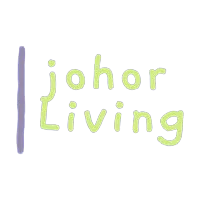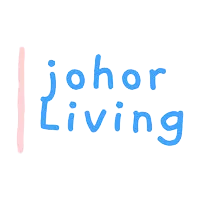Read Our Latest Blogs
Lorem ipsum dolor sit amet, consectetur adipiscing elit. Cras in fringilla turpis, eu consequat ante.

Planning for early retirement
Early retirement refers to the decision to leave the workforce and stop working for income at a younger age than the standard retirement age. While the standard retirement age varies from country to country, it typically falls between 60 and 67 years old. Early retirement, on the other hand, might occur anywhere from the late 30s to the early 60s, depending on individual circumstances and financial planning.

Here are some key aspects and considerations related to early retirement:
Financial Independence: Early retirement requires careful financial planning and achieving financial independence. It involves having sufficient savings, investments, or passive income streams to cover living expenses without the need to work for a salary.
Saving and Investing: Early retirees often focus on aggressive saving and investing strategies to accumulate enough wealth to sustain their lifestyle throughout retirement. This may involve higher savings rates, smart investment choices, and potentially taking more significant risks with investments to achieve higher returns.
Frugal / Alternative Living: Many early retirees adopt a frugal lifestyle to reduce expenses and increase their savings rate. By living below their means, they can save more money and accelerate their path to financial independence. Frugal may not be the only way to reach retirement faster. Another way is to manage your expenses and capitalize on the strength of the Singapore dollar to stretch your retirement funds or to achieve a higher mileage with your retirement dollars.
Retirement Planning: Early retirement requires extensive retirement planning, including estimating living expenses, setting retirement goals, considering inflation, and projecting investment returns. It's essential to work with financial advisors or conduct thorough research to create a solid retirement plan.
Healthcare Considerations: Healthcare costs can be a significant concern during early retirement, as most countries' retirement benefits usually begin at a later age. Early retirees may need to arrange private health insurance coverage until they become eligible for government or employer-provided healthcare benefits.
Hobbies and Activities: Early retirement allows individuals to pursue their passions, hobbies, and interests more actively. It can provide more time for travel, volunteering, starting a business, or engaging in creative endeavors.
Risks and Challenges: Early retirement comes with potential risks and challenges. Longer retirement periods mean that the retirement savings must last for more years, which requires careful management and adjustment for inflation and market fluctuations.
Part-Time Work or Side Hustles: Some early retirees may choose to work part-time or have side hustles to supplement their income during retirement. This can help ease financial concerns and provide additional fulfillment.
Active and Passive Retirement: Another concept is active and passive retirement. Active retirement refers to the time where your body is still able and your can actively pursue your interests and hobbies and adopt a pro-active approach. You can do more things like travelling, taking up new interests and hobbies or catch up with retirees / pals. In active phase, I will also want to work because I can’t play all the time and need work as an endorsement of self-worth. At the same time, the work should not obstruct my travel plans. With this thinking, I do not need to have a large sum of money before I get into retirement mode since I will still be working. At the same time, I must build up my capabilities in gig works so that my travel plans not affected. The recent pandemic has definitely accelerated this process. When necessary, I can finance my active phase by renting out my current property in Singapore and hedge it in terms of rental in another country or traveling and thus we don’t really need a permanent place in sg. If I rent out my property in sg, the rental can probably cover all my traveling expenses in neighboring countries.
Passive retirement refers to the time where your body requires more medical care and attention and thus limits your mobility or options and thus requires you to do more planning and incorporating the medical aspects into our daily lives. Once I get into the passive phase of retirement, I will be back in sg as this is where my insurance can cover. So is important to sustain my insurance during my retirement. If necessary, we can downgrade my property to hopefully have a comfortable passive retirement.
Early retirement is an appealing prospect for those who prioritize financial independence, work-life balance, and pursuing their passions. However, it requires disciplined financial planning and a commitment to living within one's means. Each individual's journey to early retirement is unique, and it's essential to evaluate personal goals, financial circumstances, and risk tolerance before making this significant decision.

© 2022 Company Name - All Rights Reserved, consectetur adipiscing elit. Maecenas commodo suscipit tortor, vel tristique sapien
johorliving@gmail.com
